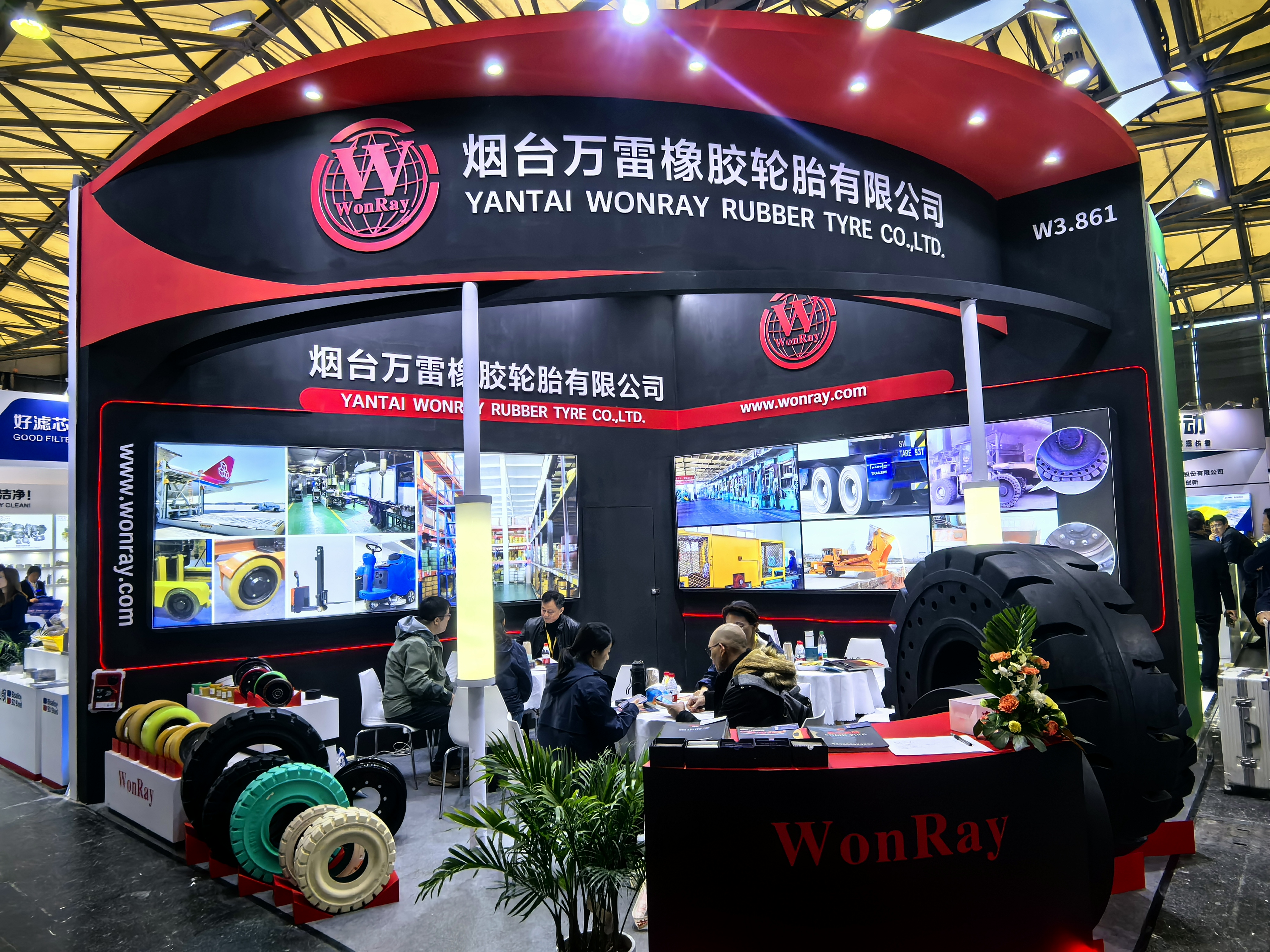In the demanding world of industrial operations, a machine’s uptime is its most valuable asset. While pneumatic tires are common, a growing number of businesses are turning to a more robust, low-maintenance solution: solid rubber tires. These tires are engineered for durability and reliability, offering a solution that minimizes downtime and keeps your operations running smoothly, no matter the environment.
What Makes Solid Rubber Tires So Effective?
Unlike air-filled tires, solid rubber tires are made of dense, durable rubber compounds. They don’t contain any air, which gives them unique advantages in tough working conditions.
Key Benefits of Solid Rubber Tires:
- Puncture-Proof Reliability: This is their most significant advantage. Solid tires are immune to punctures from nails, glass, and sharp debris, making them ideal for scrapyards, recycling centers, and construction sites.
- Minimal Maintenance: Without the need for air pressure checks, a solid tire is a truly maintenance-free solution. This frees up your team’s time for other critical tasks and reduces ongoing operational costs.
- High Load Capacity: The dense rubber construction provides a high load-bearing capacity, offering superior stability for heavy-duty applications.
- Longer Lifespan: Solid tires generally have a longer service life than pneumatic tires, reducing the frequency and cost of replacements.
- Reduced Downtime: By eliminating flats, solid tires ensure your equipment stays operational, directly translating to increased productivity and a healthier bottom line.
Where to Use Solid Rubber Tires
While they may not be the best choice for every application, solid rubber tires are a strategic investment for specific industries and environments.
- Warehouses and Distribution Centers: Solid tires are excellent for indoor use on smooth, hard surfaces, where floor damage is not a primary concern.
- Waste Management and Recycling: The high risk of punctures from sharp waste makes solid tires an essential choice for a business that can’t afford unexpected flats.
- Heavy Manufacturing: In settings where forklifts carry very heavy loads on even surfaces, the stability and load capacity of solid tires are unmatched.
- Ports and Logistics Terminals: For container handlers and other heavy machinery, solid tires provide the necessary durability and stability.
Summary: For businesses where reliability and uptime are non-negotiable, solid rubber tires offer a powerful solution. Their puncture-proof nature, low maintenance, and exceptional durability make them a smart long-term investment that can significantly improve productivity and reduce operational headaches.
FAQ
Q1: Do solid rubber tires provide a less comfortable ride for the operator? A1: Yes, because they don’t have air to absorb shock, solid tires offer a rougher ride than pneumatic tires. This is a trade-off for their durability and puncture resistance.
Q2: Are solid rubber tires more expensive than pneumatic tires? A2: The initial cost of solid rubber tires is generally higher. However, their longer lifespan and the elimination of downtime and repair costs often make them a more cost-effective solution in the long run.
Q3: Can solid tires be used on any type of forklift? A3: Solid tires are typically used on forklifts and other industrial equipment designed for high-load, indoor, and rough-terrain applications. It’s important to consult with an expert to ensure the tire is compatible with your specific equipment.
Q4: How do I know when it’s time to replace a solid rubber tire? A4: Solid tires have a clear “wear line” molded into the rubber. When the tire wears down to this line, it’s time to replace it. Additionally, look for signs of significant damage like large chunks missing from the tire.
Post time: 20-08-2025

